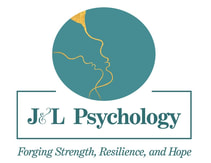|
By Laura Price, PhD The headlines are screaming what we already know and feel: Too much work, too much pressure, and too little space to think, to play, and to love, is a recipe for burnout. Consider this study from the World Health Organization and International Labor Organization published in May in Environment International. It is the first global analysis of loss of life and health related to working long hours: “The study concludes that working 55 or more hours per week is associated with an estimated 35% higher risk of a stroke and a 17% higher risk of dying from ischemic heart disease, compared to working 35-40 hours a week.” The takeaway message from the study, as quoted in the release, is that “working 55 hours or more per week is a serious health hazard,” according to Dr. Maria Neira, the director of the Department of Environment, Climate Change and Health, at the World Health Organization. “It’s time that we all, governments, employers, and employees wake up to the fact that long working hours can lead to premature death.”
The study used data from five years ago. Pre-pandemic. The COVID-19 crisis, in its fourth wave in the United States, continues to strain personal, professional, and community resources to a point where there is no turning back. At the moment of greatest stress on our systems lies opportunity. Changing Our Mindsets Families and young professionals stretching calendars and budgets to commute to desk jobs are reordering the daily grind. Nearly 18 months into the pandemic, tipping points dot the recurrent waves of COVID breakouts, like surfers awaiting the safest ride to shore. When the latest wave (hopefully) recedes, how will we know what really DOES matter? And HOW do we create a work-life balance in a climate begging for relief and reinvention? The 2021 Modern Wealth Survey conducted by Charles Schwab & Co. investment services found that people are reordering their priorities, reporting, “ … more than two-thirds (68 percent) of Americans have reprioritized what matters most to them, with 69 percent saying mental health is more important than it was before, followed closely by relationships (57 percent), financial health (54 percent) and physical health (39 percent).” Where do we start? First, it helps to know the signs that something needs to give. The phenomenon known as “burnout” has been studied for years. In the 1970s, researcher and psychologist Herbert Freudenberger coined the term “burnout” to describe mental and physical exhaustion that results from caregiving or interpersonal responsibilities in one’s profession. The WHO has since classified burnout as a “state of vital exhaustion” characterized by emotional exhaustion, depersonalization and cynicism, as well as feeling inadequate or ineffective in one’s achievements. Burnout largely has been a hallmark of medical and other helping professions, significantly so during the current pandemic. It also can be generalized to any career or job in which a person feels more depleted than energized and as a result experiences emotional, physical, and cognitive changes. Experts interviewed in a recent NY Times article on how to manage burnout without quitting your job recommend acts of kindness, reaching out to colleagues and friends, recharging, and easing your workload as ways to mitigate burnout. The Mayo Clinic's guide to burnout lists symptoms, possible causes, consequences, and suggestions for readers. Seeking professional help also can be an important step toward healing. How do We Address Burnout in Our Clients? Some may suggest taking hot yoga, sipping chamomile tea, or meditating every day. This is a great start. Treating burnout, however, requires more than self-care strategies. Think of it as a combination of self-, other-, and community/organizational-based care. We at J&L Psychology recognize the importance of helping our clients advocate for what they need so they can take better care of themselves and their loved ones. This may mean:
How Do We Take Care of Our Staff? J&L Psychology also recognizes our responsibility to create a professional atmosphere that is ethical, nurturing, and dynamic. This means offering our employees the tools they need to do their jobs well while taking care of themselves holistically. We provide benefits and generous time off. We promote informal and formal supervision of staff and are active in promoting their career and personal goals. We believe in the power of creating a community that gives back through charitable activities and donations to worthy causes. And we are passionate about advocating for institutional and societal changes that prioritize social justice. Diverse viewpoints and skillsets only make us better as an organization. We have an opportunity to drive change and change the conversation around burnout by preventing it from happening. Join us. Are you a psychologist considering changing the way you work? J&L Psychology may have options for you. Click here to learn more about our employment opportunities and philosophy of care for our clinicians and our patients. More Burnout Resources WHO and Labor Environment International Washington Post Comments are closed.
|
Categories
All
Archives
March 2024
|
Home The Practice FAQs Practice News & Blog Stress & Anxiety Depression Trauma Couples Therapy Child Therapy, Parenting Coaching & Family Therapy Self Development Treatment For Professionals Contact
J&L Psychology Group, PLLC302 5th Avenue, 11th Floor, #1112, New York, NY, 10001
(646) 609-6323 If this is a mental health emergency, please call 911, go to your nearest emergency room, or call or text the Suicide and Crisis Lifeline at 988. Stay up to date: |
Follow us on Facebook and Instagram:
© Copyright J&L Psychology Group 2021
|


 RSS Feed
RSS Feed
